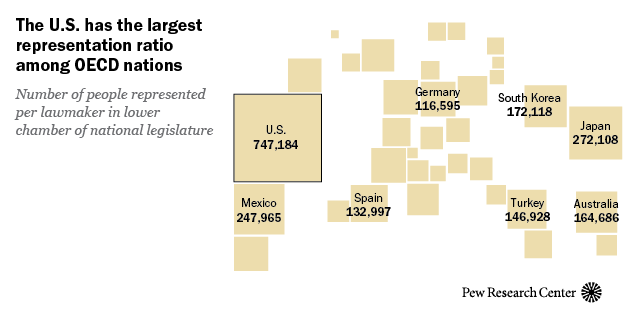Optimus Prime
Well-known member
Online
Bringing this up to the the DC statehood thread and the real reason it isn't a state is that it would add 2 Democratic Senators
I know that Bill Maher has been banging this drum for years
Population of North & South Dakota combined (as of 2019) - 1,646,721
Population of California (2019) - 39.51 Million
Number of Senators for North & South Dakota - 4
Number of Senators for California - 2
This seems to be more than a little imbalanced wouldn't you say?
Should the number of Senators be tied to population (one senator per X number of people)?
Tied to party affiliation or votes?
11 million Californians voted for Biden, but 6 million voted for Trump which is more than he got in Texas
Keep it as it is?
I don't know the answer but this is a huge discrepancy - and I think it's nationwide
Seems that I read somewhere the number of people all the democratic Senators represented vs the Republicans and there was a sizeable difference
I know that Bill Maher has been banging this drum for years
Population of North & South Dakota combined (as of 2019) - 1,646,721
Population of California (2019) - 39.51 Million
Number of Senators for North & South Dakota - 4
Number of Senators for California - 2
This seems to be more than a little imbalanced wouldn't you say?
Should the number of Senators be tied to population (one senator per X number of people)?
Tied to party affiliation or votes?
11 million Californians voted for Biden, but 6 million voted for Trump which is more than he got in Texas
Keep it as it is?
I don't know the answer but this is a huge discrepancy - and I think it's nationwide
Seems that I read somewhere the number of people all the democratic Senators represented vs the Republicans and there was a sizeable difference


